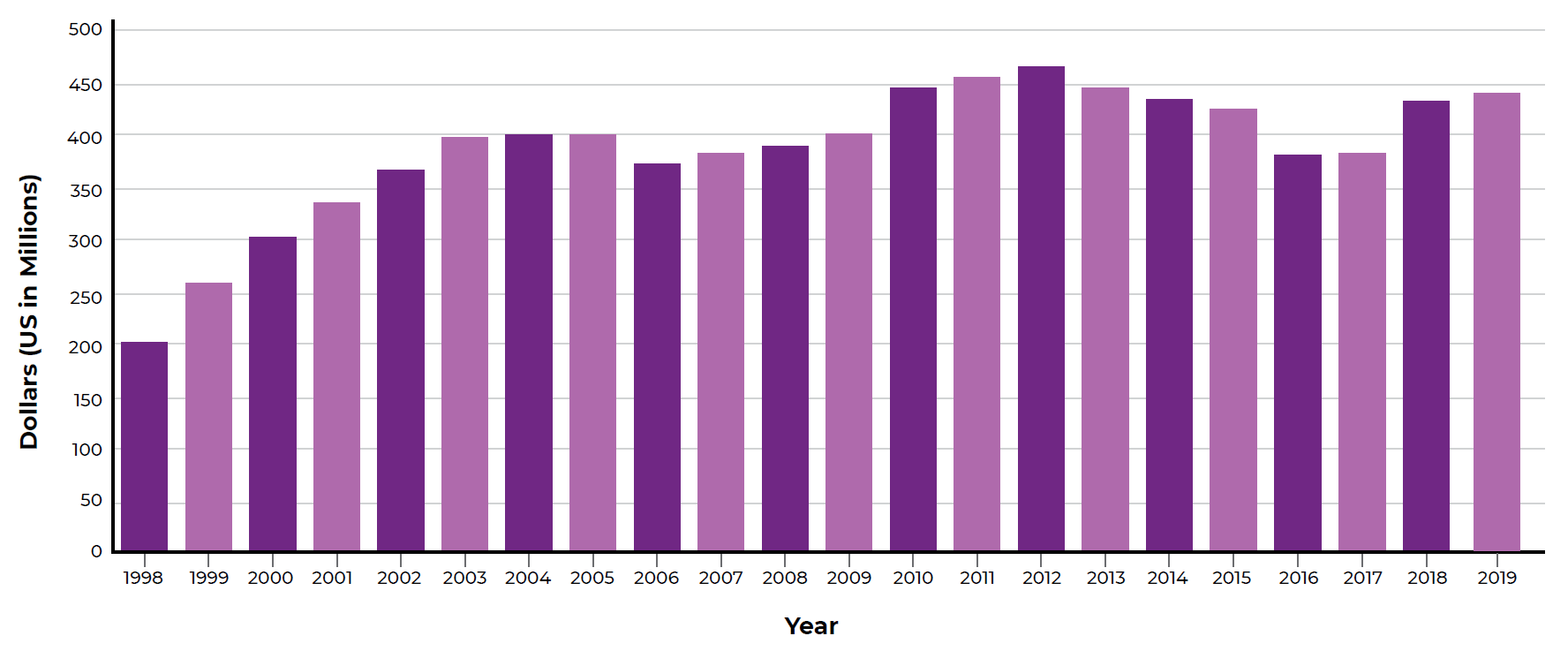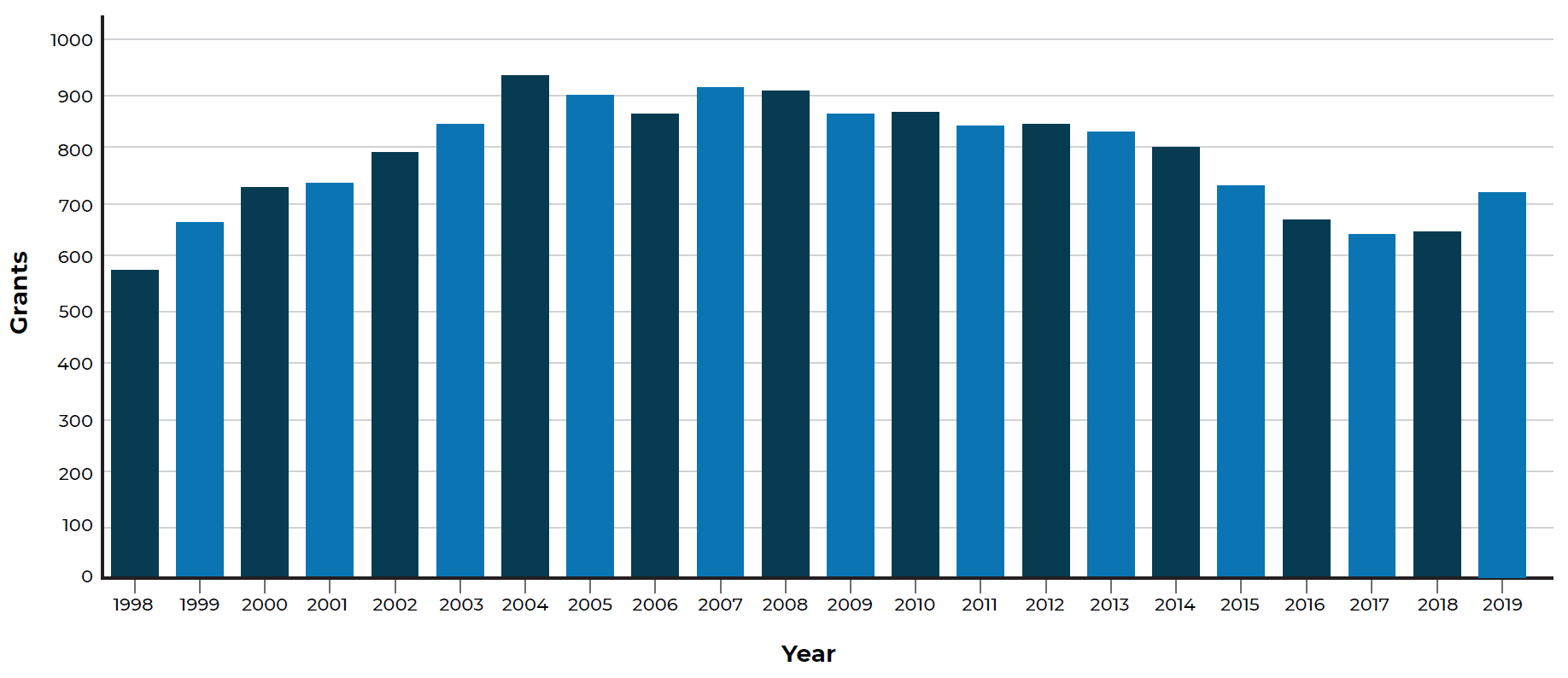2019 Overview and Highlights
Advancing Behavioral Research
A look back at fiscal year 2019 for NCI’s Division of Cancer Control and Population Sciences
Download the 2019 ReportInvestments in Cancer
Control Research
Researchers funded by DCCPS have advanced science to improve public health for more than two decades, and we celebrate their research accomplishments in cancer control and population sciences. Major programmatic areas include epidemiology and genomics research, behavioral research, health care delivery research, surveillance research, implementation science, and survivorship research.
In fiscal year 2019, DCCPS funded 716 grants valued at more than $442 million, with work in the United States and internationally aimed to reduce risk, incidence, and deaths from cancer, and to enhance the quality of life for cancer survivors. In addition, the division funded $86 million in contracts, which include the SEER Program. While the majority of DCCPS funding is for investigator-initiated research project grants, the division also uses a variety of strategies to support and stimulate research, such as multi-component specialized research centers and cancer epidemiology cohorts.
Total Dollars (in Millions)

Total Grants

Opportunities
for Researchers
In addition to encouraging scientific ideas for researchers through investigator-initiated applications and omnibus solicitations, DCCPS develops and participates in NIH funding opportunities aimed at stimulating new directions in specific research to examine, discover, and test methodologies to improve public health.
More Funding OpportunitiesThe following are examples of recent funding opportunity announcements to encourage research projects in emerging or priority areas:
- Cancer Prevention and Control Clinical Trials Grant Program (PAR-18-559)
- Dissemination and Implementation Research in Health (PAR-19-274, PAR-19-275, PAR-19-276)
- Electronic Nicotine Delivery Systems (ENDS): Population, Clinical and Applied Prevention Research (PAR-18-847, PAR-18-848)
- Improving Outcomes in Cancer Treatment-related Cardiotoxicity (PA-19-111, PA-19-112)
- Integration of Individual Residential Histories into Cancer Research (PA-17-295, PA-17-298)
- Modular R01s in Cancer Control and Population Sciences (PAR-18-869)
- NCI’s Research Interests to Improve Interprofessional Teamwork and Coordination During Cancer Diagnosis and Treatment (NOT-CA-19-059)


